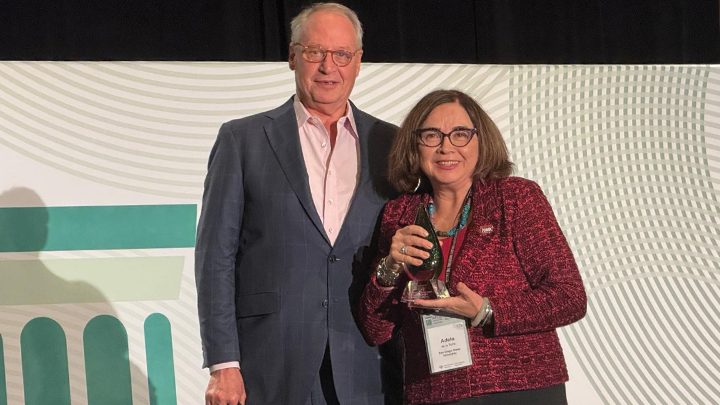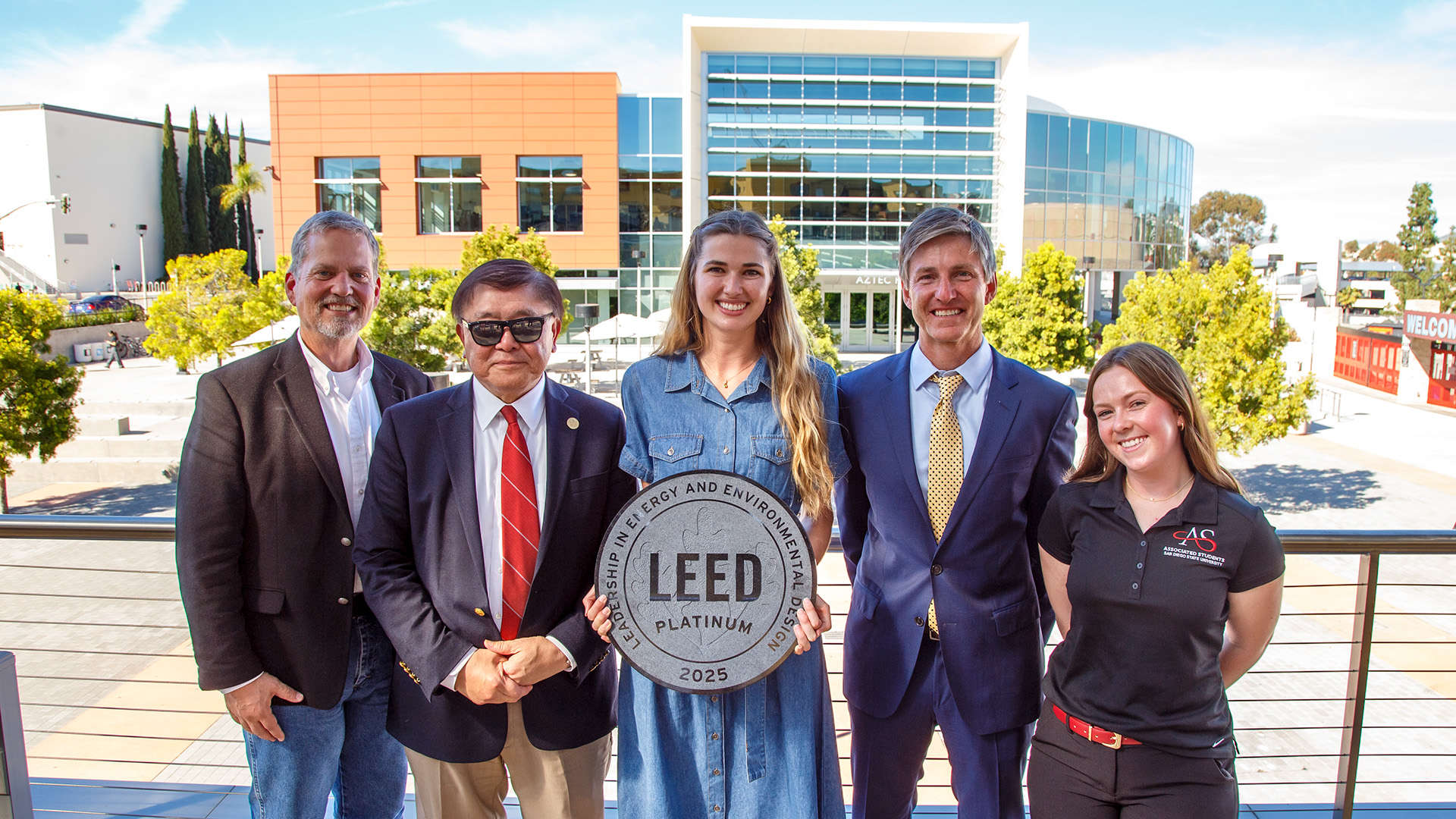Common ground: SDSU global seminar examines grassroots peacebuilding in Colombia
Intercultural Perspectives on Peace and Justice in Colombia is a three week study abroad course that looks at the keys to unlocking peace after decades of civil conflict
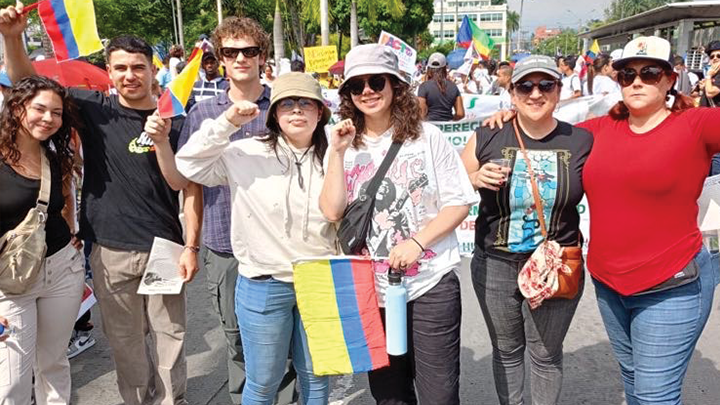
In the summer of 2023, Manny Carrillo spent three weeks in Colombia learning about the aftermath of the country’s decades-long civil war, meeting with former guerilla fighters, Indigenous and Afro-Colombian victims of the violence, government officials, human rights advocates and others about the pivot to peace.
The key insight for Carrillo, a San Diego State University Weber Honors College senior majoring in criminal justice and international security, is peace is not solely about treaties between combatants to end hostilities. It takes “overarching support from the community, and an overall mindset that everybody needs to work towards,” he said.
“One of the things I will take away from this program for the rest of my life is the culture of forgiveness,” he continued. “People facing terrible atrocities and going through so much, they still see a bright future at the end of the road, and they feel it is necessary to forgive to move forward.”
Carrillo took part in the inaugural Intercultural Perspectives on Peace and Justice in Colombia study abroad global seminar, led by SDSU Associate Professor Rebecca Bartel, who has 20 years of experience working in Colombia.
The global seminar provides a deep dive into grassroots, community-based peacebuilding and restorative justice following the 2016 peace agreement between the Colombian government and FARC (Revolutionary Armed Forces of Colombia) rebels that ended five decades of civil conflict, said Bartel, a professor in SDSU’s Department for the Study of Religion and former Fred J. Hansen Chair of Peace Studies.
Students examine the current state of play since the signing of the peace accords, what work still needs to be done, and how communities impacted by the violence are taking matters into their own hands to foster peace.
“We tend to think about what governments do, what the United Nations is doing, what a huge organization like the European Union is doing,” said Bartel. “But what about people on the ground who live in this new society every day? How do you reconcile with your neighbor who you used to be in conflict with?”
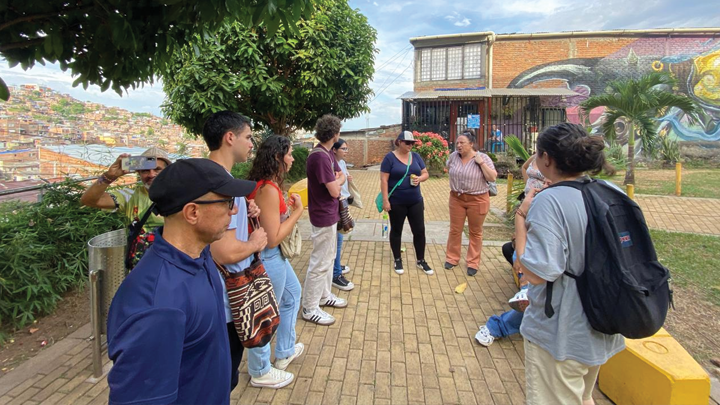
The Peace and Justice in Colombia program is offered in collaboration with the Research Group on Social Movements, Intercultural Dialogue and Peacebuilding at Universidad de Javeriana-Cali. An in-person information session for the upcoming summer 2025 trip to Colombia is scheduled for 3 p.m. Dec. 5 atCollege of Arts and Letters 109.
While the global seminar is based in Cali, Colombia’s third largest city, students spend time in rural communities that are on the front lines of the conflict and reconciliation.
They visited an Indigenous village that hosts two reintegration camps for native former guerilla fighters from throughout Colombia, said Bartel.
“They decided to receive these groups of former combatants because the women in the community said these are our children, and we want to bring them back into society,” said Bartel. “That is the kind of experience that sticks (with students) because a community that has been terrorized by the violence can also say these are our children.”
Sarah Davisson, who graduated from SDSU with a degree in political science, previously preferred studying politics over conflict resolution. But after this seminar in Colombia, she enrolled in a master's program in violence, conflict and development at a university in the United Kingdom.
“Honestly, I wouldn’t have done it without this program,” she said. “I learned more in that one period than I possibly could have learned about the same subject in two years of college classes. It was one of the most incredible experiences of my life.”
She met a former rebel fighter from The Netherlands who originally came to Colombia to teach and now cannot return to her home country because she is considered an international criminal. Another former fighter was imprisoned and missed seeing his children grow up. Others told stories of living on what they could find in the jungle while hiding from the Colombian government. Students asked questions to learn about their experiences.
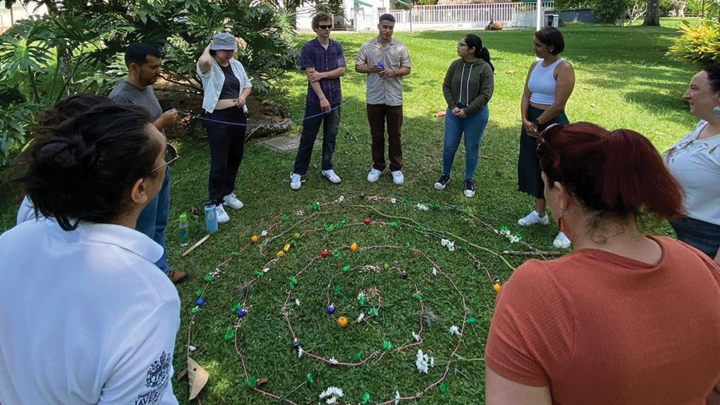 Open the image full screen.
Open the image full screen.Bartel said the global seminar is designed for a cross section of students interested in Latin American studies, political science, ethnic studies, discourse, peace and justice, and conflict resolution. Given today’s current events, the Peace and Justice in Colombia seminar spotlights the value in being able to sit down with people who think differently, have a civil dialog, and attempt to find common ground, she said.
“I think, hopefully, we are nurturing a new generation of not just peacebuilders but also of students who are curious about the world and curious about the possibility of a world that is more peaceful and more just,” she said.
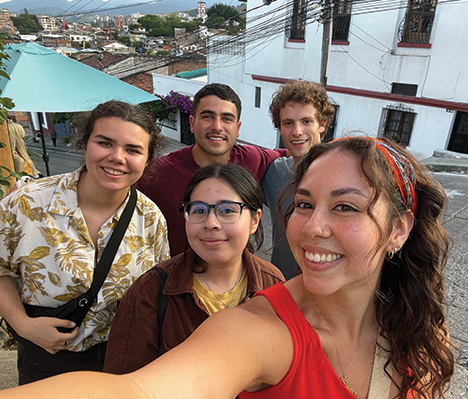 Open the image full screen.
Open the image full screen.
